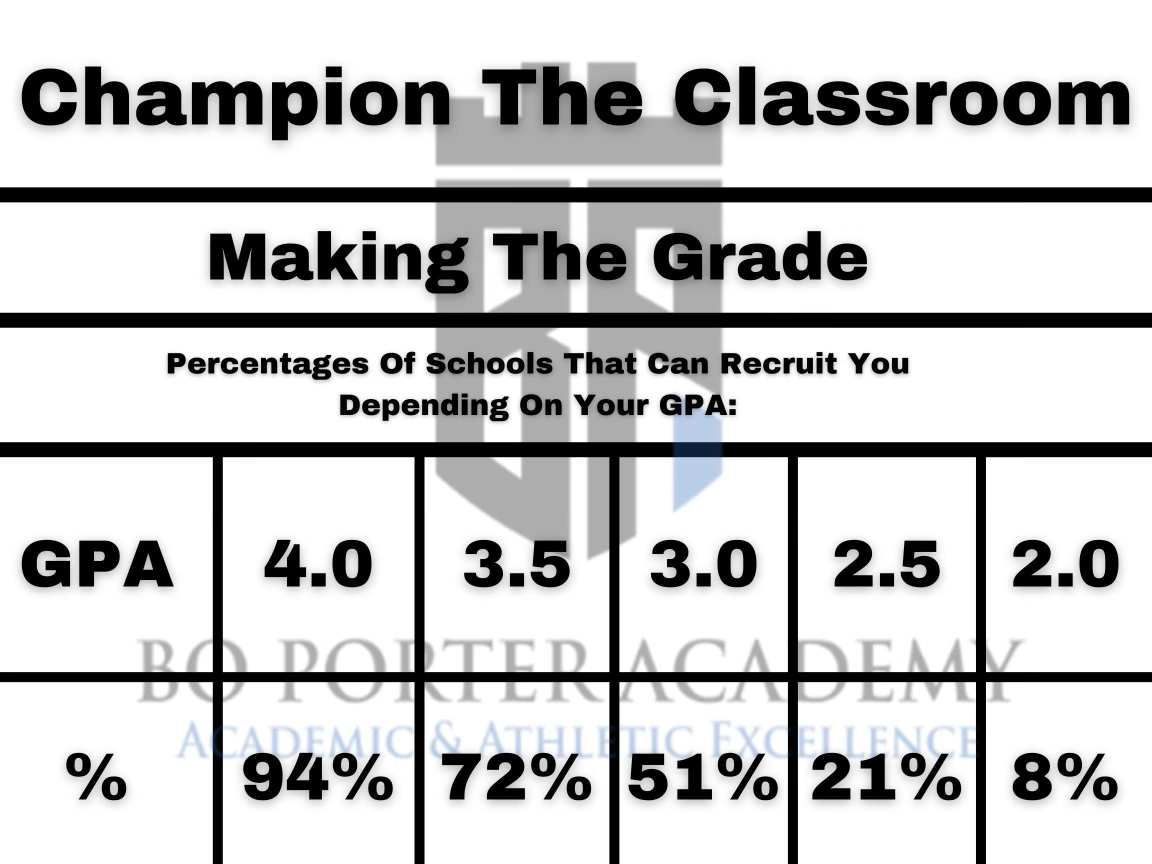
With summer coming to an end I would first like to say, I hope you enjoyed your summer break. As we transition from summer to the start of the academic school year I wanted to share some valuable insight and wisdom with our scholar-athletes.
Words of Wisdom…
Here is a piece of advice I received and was constantly reminded of during my childhood by my mother Beverly Porter. She would tell me, “Sports is a career with a timeline, but your desire and ability to continuously educate yourself will last a lifetime.”
Armed with those priceless words of wisdom from my mother, she created a mindset and core value system in me that instilled my educational and athletic development as equals. It was that very mindset that I used to challenge myself to succeed in the classroom the same way I challenged myself to consistently hit a baseball hard and far.
With school now upon us I wanted to take a moment and provide our scholar-athletes with a navigation system for academic excellence.
Here is a question all educators and coaches should ask themselves and answer: “How do we encourage the development of scholar–athletes rather than athlete-scholars, and how do we motivate scholar-athletes to make serious commitments to higher education?”
We have to change the way they view educational success and change starts in the mind. If we change the way scholar-athletes approach their goal-setting, we may be able to better advise them and help them to become scholar-athletes rather than athlete-scholars.
Let’s face it, athletes like competition and the me versus you mentality. With that being the case, I invite our scholar-athletes to a game. In this game Task Orientation is up against Ego Orientation.
An individual who is driven by a sense of “task orientation” considers success to be met with the development of new skills or the improvement of a personal ability level. An individual who, for example, seeks to read the collective works of William Shakespeare or to learn how to cook is driven by task orientation concepts in order to set these goals.
Conversely, an individual who is driven by a concept of “ego orientation” views success as dependent upon one’s superiority over others. Ego orientation, for example, drives the salesman who is only satisfied with being the highest-grossing salesman in his territory or the swimmer who will only settle for beating the rest of his competitors.
Task orientation, therefore, can be considered to be a self-referencing orientation, while ego orientation focuses on the opinions and actions of others. Sports psychologists also have referred to task orientation as “mastery orientation” and ego orientation as “competitive orientation” (Steinberg, Singer & Murphey, 2000).
Most frequently, ego orientation drives competitive athletes’ performances on the fields of play. Hitters strive to lead the league in hitting, sprinters endeavor to post faster times than other runners in a particular race, and professional golfers try to shoot lower scores than fellow players in a tournament. Athletes have been trained, from the outset, to set easily definable goals: winning over other people equals success; losing to other people equals failure. It is therefore of little surprise that student-athletes—young men and women still maturing physically and emotionally—continuously scrape and fight to be the highest, strongest, and fastest, for they have long been driven by ego orientation from the very starts of their playing careers (Steinberg, Singer & Murphey, 2000).
But if scholar-athletes are indeed driven by ego orientation, why do so many of them generally appear disinterested in “winning” in the classroom as well? We would expect that such individuals would set easily definable win-or-lose goals for the classroom—a grade of “A” marks success; a grade of “D” marks failure—and then be driven to carry those goals to fruition. Why do so many scholar-athletes instead seem complacent in their academic work, content merely to sit in the back of the classroom, do the bare minimum number of assignments, and barely pass whatever classes they need—or, more often, fail to pass those classes—before moving on? As educators, we spend considerable time bemoaning the fact that scholar-athletes seem enthusiastic about winning on the field but poorly motivated about winning in the classroom. Perhaps we have failed to recognize the kind of goal orientation needed for success in the classroom, and have failed to properly apply scholar-athletes’ unique goal orientation to those concepts.
It must be recognized at the outset of this discussion that the classroom generally is not the best place for ego-based goal orientation. Success in the classroom is usually not regarded by students as an adversarial process of attempting to obtain a higher grade than the other students as a means of obtaining ego gratification. Instead, most successful students are driven by task orientation. For these students, the development of new skills and self-improvement—often for its own sake rather than for some external benefit—are the factors that drive their goal-setting. They set goals based on their own perceptions of high-water marks for self-achievement. This may be defined as an important mark of earning no less than a grade of “A” in any class, working hard to reach graduation, or any academic goal in between.
Researchers have demonstrated that a focus on task orientation as a way of setting goals has promoted the most effective motivational patterns conducive to long-term achievement and academic success. It is this orientation which results in greater task enjoyment, less boredom, demonstrated greater increases in task performance, less anxiety and better overall performance.
So as you embark on the new school year armed with the wisdom shared above I challenge them all to “check your ego at the door” and embrace a task oriented mindset.
Wishing all our scholar-athletes tremendous success this academic year. It’s GO TIME! Let’s champion the classroom!
Bo Porter,
Founder
Bo Porter Academy
